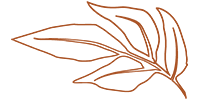If you are currently or about to start breast/chestfeeding or pumping, it’s possible you may be experiencing a sense of overwhelm as you are navigating the steep learning curve these new skills entail. And the expectation that you “should’ be able to master these skills overnight can give you an extra nagging feeling of not measuring up. Have you considered how acupuncture and herbal medicine can help with issues such as clogged ducts, mastitis, low milk supply, and techniques to help you along the way?
Everyone’s journey through feeding their baby will look different and there is no one single ‘right’ way. No doubt you have read books or articles about proper nutrition and feeding and have come up with your own individual plan or perhaps one has evolved through trial and error. Just remember, how you care for and feed your baby is a reflection of you and your family’s unique experience and story. You are the author, and the story is still being written. So, read on if you would like to learn some excellent ways you can prepare your body to ease you through the process.
Growing and birthing a baby takes an incredible toll on your body and many of your resources (qi and blood!) go to work to simply sustain your own maternal health. So, it is essential to ensure your body has the added reserve of resources to produce milk. In Chinese Medicine theory, it is understood that milk is made from the blood. It is critical to build and strongly nourish blood, both throughout your pregnancy and postpartum. Qi helps keep blood flowing smoothly and ensures circulation is optimal, so we want to nourish and move qi as well in late pregnancy and postpartum. Look over the list of foods suggested here and consider how you can incorporate as many as possible into your diet. Make a list and plan some menus. We suggest eating dark leafy greens, sea veggies, trace minerals, bone-in meats, or fish (always organic), grains including oats, millet, barley, and sweet rice. Legumes are another great food source to nourish the blood and qi: *adzuki, chickpeas, lentils, mung beans, soybeans, *peanuts. Papaya (especially green), one daily if possible, would be excellent. Sweet potato or Chinese yam, fennel and fennel seed will also increase the supply. Add these herbs as you cook- basil, marjoram, dill, anise, caraway, turmeric. Additional ideas include gelatin (from grass fed source), coconut water, and coconut meat. It is also important to consume ample amounts of fluids by drinking 8-12 cups of water daily. Incorporating soups, stews, and porridges into your diet will also aid in fluid intake. Herbal infusions are also beneficial during this time and some we love are nettles, red raspberry leaf (which supports the uterus after birth), mint rose, and barley. We also need qi, or energy to express the milk so (good news!) slowing down and allowing yourself to rest will absolutely benefit lactation.
In the early days of breast/chestfeeding and pumping, sore nipples are a very common concern (not to mention, really painful!). It is important to find the cause, but there are some things you can do in the meantime to give yourself some relief. A warm soak with Epsom salts or warm compress is like a spa for painful nipples! You can dissolve half a teaspoon of sea salt or Epsom salts in eight ounces of warm water, place the solution in a glass, and invert onto your nipples for about two minutes, five to seven times a day, after pumping or nursing. This should be followed by applying a nipple butter, we like Earth Mama’s. It contains herbs such as calendula and mango seed that moisturize the skin and decrease inflammation.
Engorged breasts are also normal in the early days of starting breast/chestfeeding or pumping as your milk supply is establishing and increasing. Nursing on baby’s cues and allowing baby to empty the breast before switching sides is helpful. Making sure baby is nursing well will minimize engorgement too. It is also essential to determine if there are any anatomical conditions present that may prevent baby from fully latching or from fully emptying the breast. Previous breast enhancement, or reduction in mom can have an impact. Your lactation specialist or pediatrician can help support you in addressing any anatomical issues that may arise. Importantly, if engorgement is present and does not subside, be aware that it may lead to clogged ducts. A clogged duct may show up as a tender area on the breast, a milk blister, pain during let down, and relief after feeding. Teas that promote healing, pain relief, and circulation are chamomile, ginger, marshmallow root, slippery elm, and burdock which are all safe while breast/chestfeeding. A warm Epsom salt soak quickly reduces swelling and inflammation to release the clogged duct. This can be done by mixing two teaspoons of Epsom salt into eight ounces of warm water and soaking the breast. There are also multiple acupuncture points that you can apply pressure to in order to address painful breasts such as Small Intestine 11, Small Intestine 1, Conception Vessel 17, and Pericardium 6 (locations can be found on acumeridianpoints.com). Please note: If your breast is red, if you have a fever or chills, body aches, or flu symptoms, contact your health care practitioner immediately. Flu-like symptoms, in addition to redness and pain at the breast, may be mastitis which must be treated immediately and often requires medical treatment and medication.
There are many herbs that can help boost milk production. Ba Zhen Tang, or 8 treasure decoction is one of our very favorites to replenish blood, qi, and jing (our prenatal qi). These are vital to promote healing postpartum and address milk production. Motherlove’s More Milk Plus herbal blend contains fenugreek, thistle, nettle, and fennel seed to support milk supply along with the teas listed above. There are multiple acupuncture points that you can apply pressure to stimulate milk production. These points include Gallbladder 21, Stomach 36, Small Intestine 1, and Conception Vessel 12. And, finally, we hate to sound like a broken record, but we will because it is so important: drinking an abundance of fluids is essential and listen to the hunger cues; it can be helpful to remind yourself to eat each time you nurse or pump.
If you are nearing the end of your breast/chestfeeding journey and need to stop milk production, there are many herbs that can help. Sage, peppermint, and parsley leaves are all anti-galactagogues and make great teas for this purpose.
Breastfeeding and pumping are often a very challenging aspect of motherhood and so, along with the increased fluid intake, we insist that rest is also so very important during this time. And not just physically but for your mental health! We know it is hard to get, especially when there are other children in the house. But sleep deprivation is a maddening cycle that leads to frustration which leads to… ah(!), you already know!! If you are fortunate enough to have a strong community of friends and helpers, let them help! Accept all the help. Step out of your comfort zone and, dare we say it, ask for help! Get the rest!
Be encouraged that you are not alone. There are many resources available. And we are here to support you. We hope you will put some of these suggestions and techniques into practice, little by little. Every moment of overcoming an issue you face leads to gaining greater confidence and assurance in your journey.

